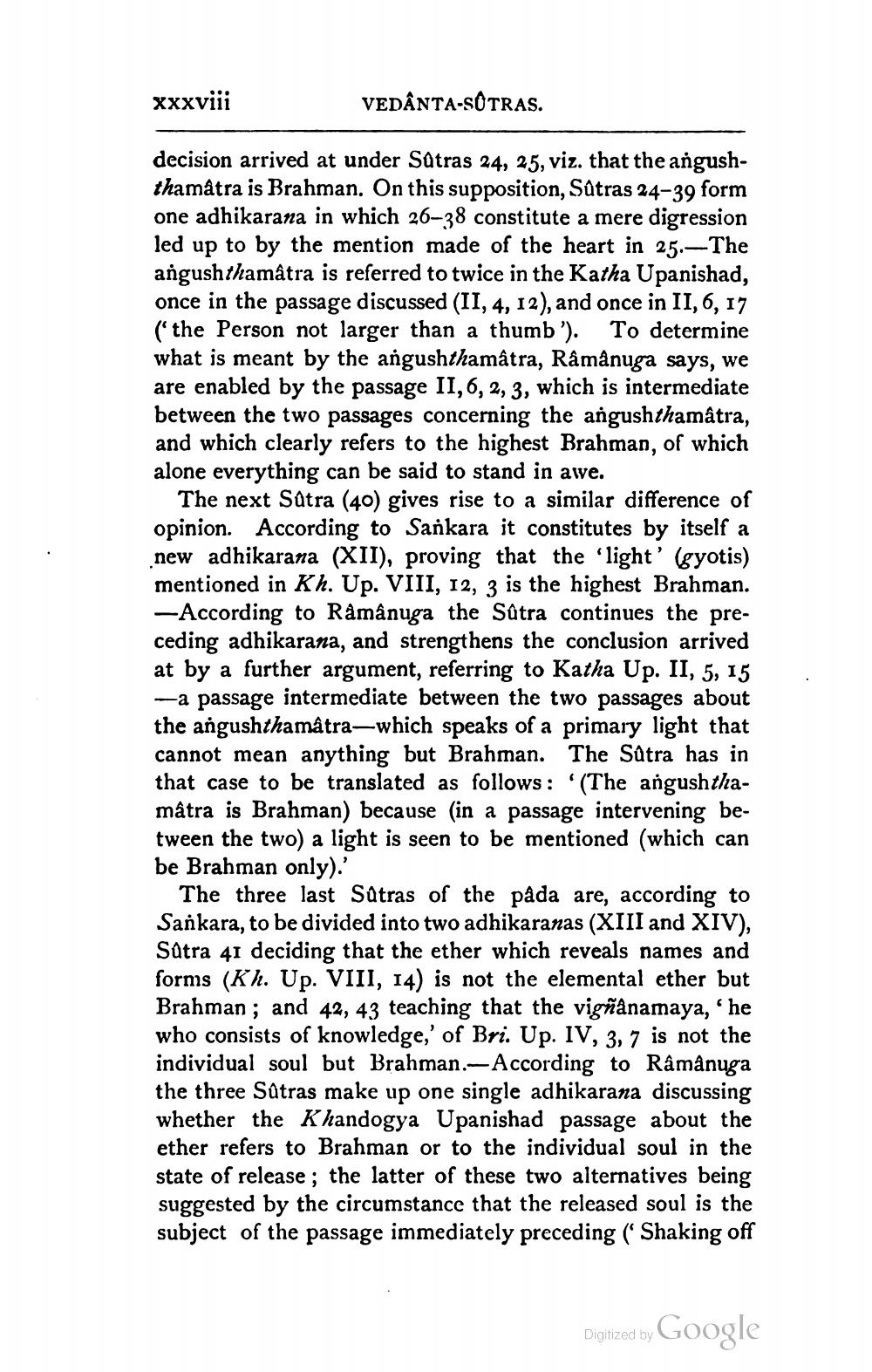________________
xxxviii
VEDÂNTA-SOTRAS.
decision arrived at under Satras 24, 25, viz. that the angushthamatra is Brahman. On this supposition, Sutras 24-39 form one adhikarana in which 26–38 constitute a mere digression led up to by the mention made of the heart in 25.--The angushthamâtra is referred to twice in the Katha Upanishad, once in the passage discussed (II, 4, 12), and once in II, 6, 17 (the Person not larger than a thumb'). To determine what is meant by the angushthamâtra, Råmanuga says, we are enabled by the passage II, 6, 2, 3, which is intermediate between the two passages concerning the angushthamâtra, and which clearly refers to the highest Brahman, of which alone everything can be said to stand in awe.
The next Satra (40) gives rise to a similar difference of opinion. According to Sankara it constitutes by itself a new adhikarana (XII), proving that the 'light' (gyotis) mentioned in Kh. Up. VIII, 12, 3 is the highest Brahman. -According to Ramânuga the Satra continues the preceding adhikarana, and strengthens the conclusion arrived at by a further argument, referring to Katha Up. II, 5, 15 —a passage intermediate between the two passages about the angushthamâtra—which speaks of a primary light that cannot mean anything but Brahman. The Sätra has in that case to be translated as follows: '(The angushthamâtra is Brahman) because in a passage intervening between the two) a light is seen to be mentioned (which can be Brahman only).'
The three last Sutras of the pada are, according to Sankara, to be divided into two adhikaranas (XIII and XIV), Sätra 41 deciding that the ether which reveals names and forms (Kh. Up. VIII, 14) is not the elemental ether but Brahman; and 42, 43 teaching that the vigñanamaya, 'he who consists of knowledge,' of Bri. Up. IV, 3, 7 is not the individual soul but Brahman.- According to Râmânuga the three Satras make up one single adhikarana discussing whether the Khandogya Upanishad passage about the ether refers to Brahman or to the individual soul in the state of release; the latter of these two alternatives being suggested by the circumstance that the released soul is the subject of the passage immediately preceding (Shaking off
Digitized by Google
Digitized by




